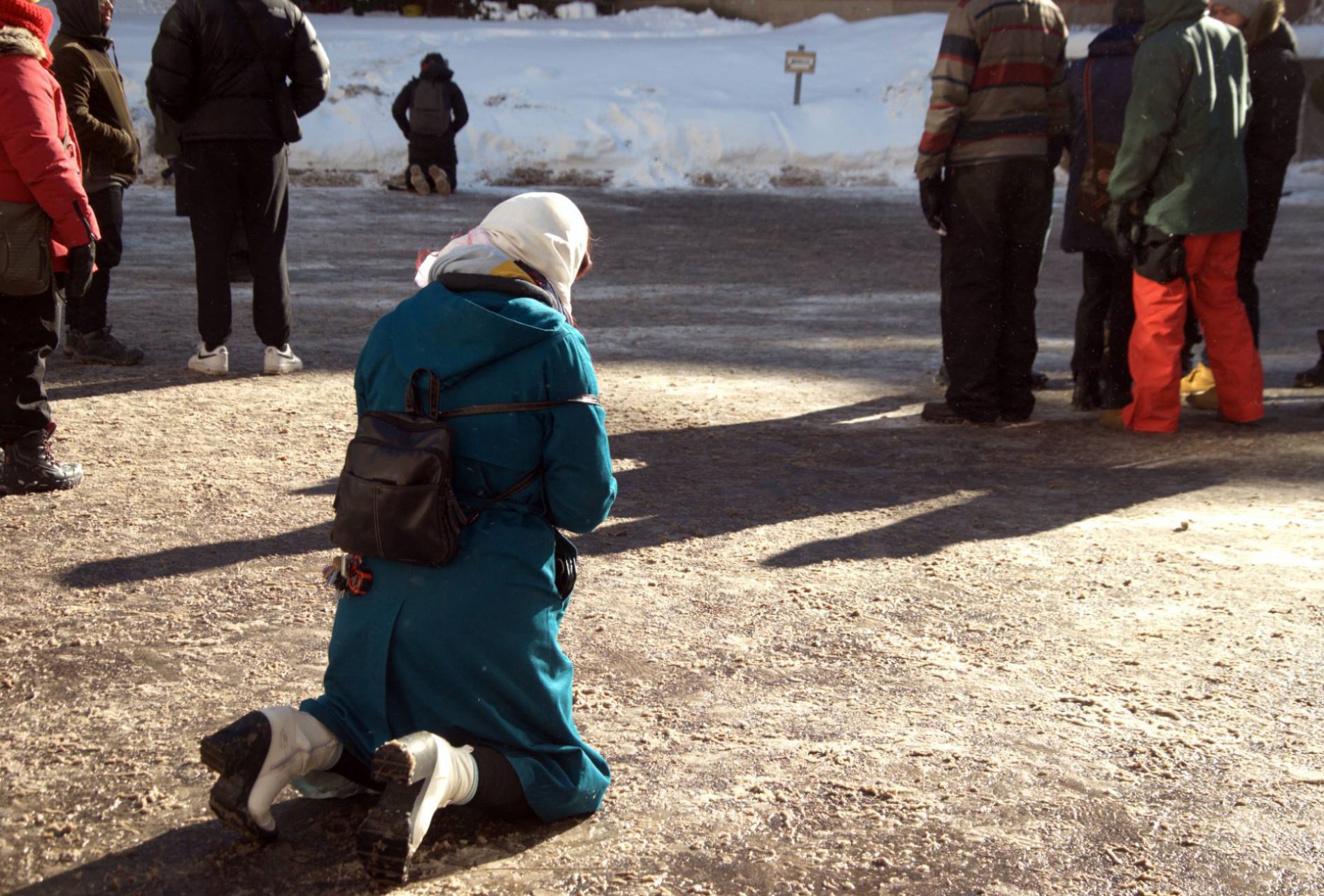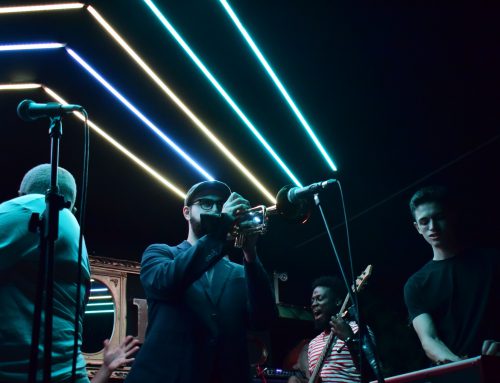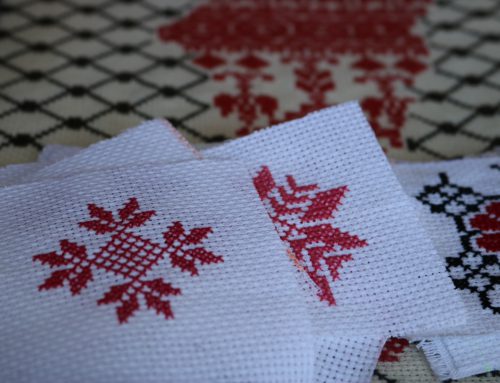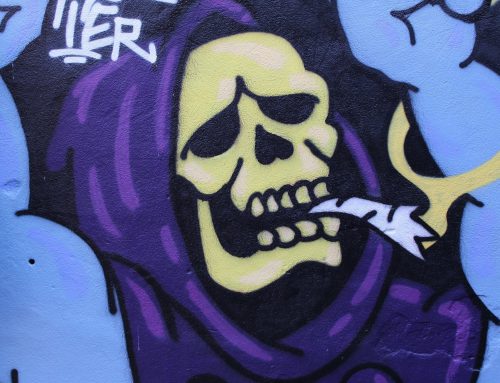BY Huda Hafez & Malo Sarazin
On a quiet Sunday morning, Mama Joshua gets ready for Sunday mass. As usual, she has her morning cup of coffee, lays out her clothes, and mentally prepares herself for a routine she has been doing at least once a week since she was a little girl. As the time approaches for Sunday mass, she sighs and reaches for her laptop instead of reaching out for her car keys.
“I’ve seen many problems amongst my Christian siblings,” says Joshua, a devout Christian who works at Action Réfugiés Montréal. “Since the closures, they all stayed home and isolated. Some churches opened, but it was not easy for people to come back because they were depressed. Some just gave up altogether.”
Man walks by the closed doors of Church of St. Andrew and St. Paul on a cold snowy Montreal day . Montreal, Quebec, 2022. Photo by Huda Hafez.
Places of worship were amongst the many public spaces to shut down during the pandemic. For many months that meant only allowing indoor funeral ceremonies of no more than 25 people, and outdoor religious ceremonies of up to 250 people.
During the year’s coldest months, devout Christians gather in the parking lot of the Mary Queen of the World cathedral in Montreal to perform Sunday mass outside. Video by Malo Sarazin.
These measures were shown to deeply affect not one, but two communities — religious communities, and immigrants and newcomers.
“It was very hard for church leaders to get back the worshipers,” says Mama Joshua. “They didn’t want to go because they didn’t go for many months and it’s hard to get things back to the way they were. Despite that, a lot of the masses we do, we do through facebook live now or outdoor mass, and it sometimes works.”
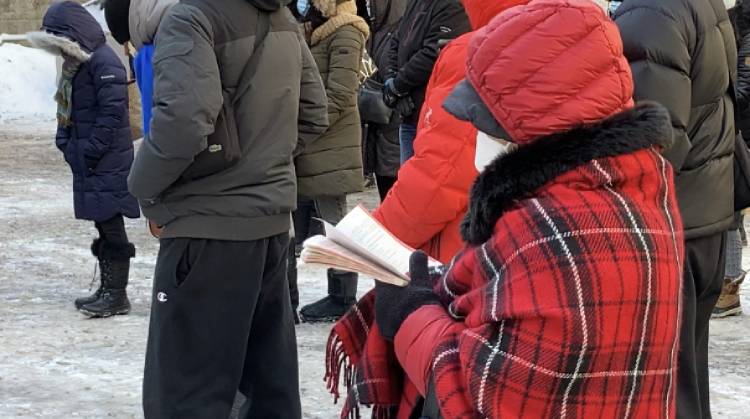
Worshiper attending Sunday mass at the parking lot of Mary, Queen of the World Cathedral. Photo by Malo Sarazin.
The closures and restrictions were especially hard for immigrants and newcomers. For many, religion is an important part of their integration into their new surroundings.
“There has definitely been an impact on immigrants following the closures of places of worship,” says Anissa Jeeroburkhan, Operations Coordinator at The Refugee Center. “Places of worship serve as a meeting place for individuals new to Canada and it has a very positive impact on their general mental health. Not being able to do something that strongly represents you as an individual is hard, especially as a newcomer trying to fit in a new place.”
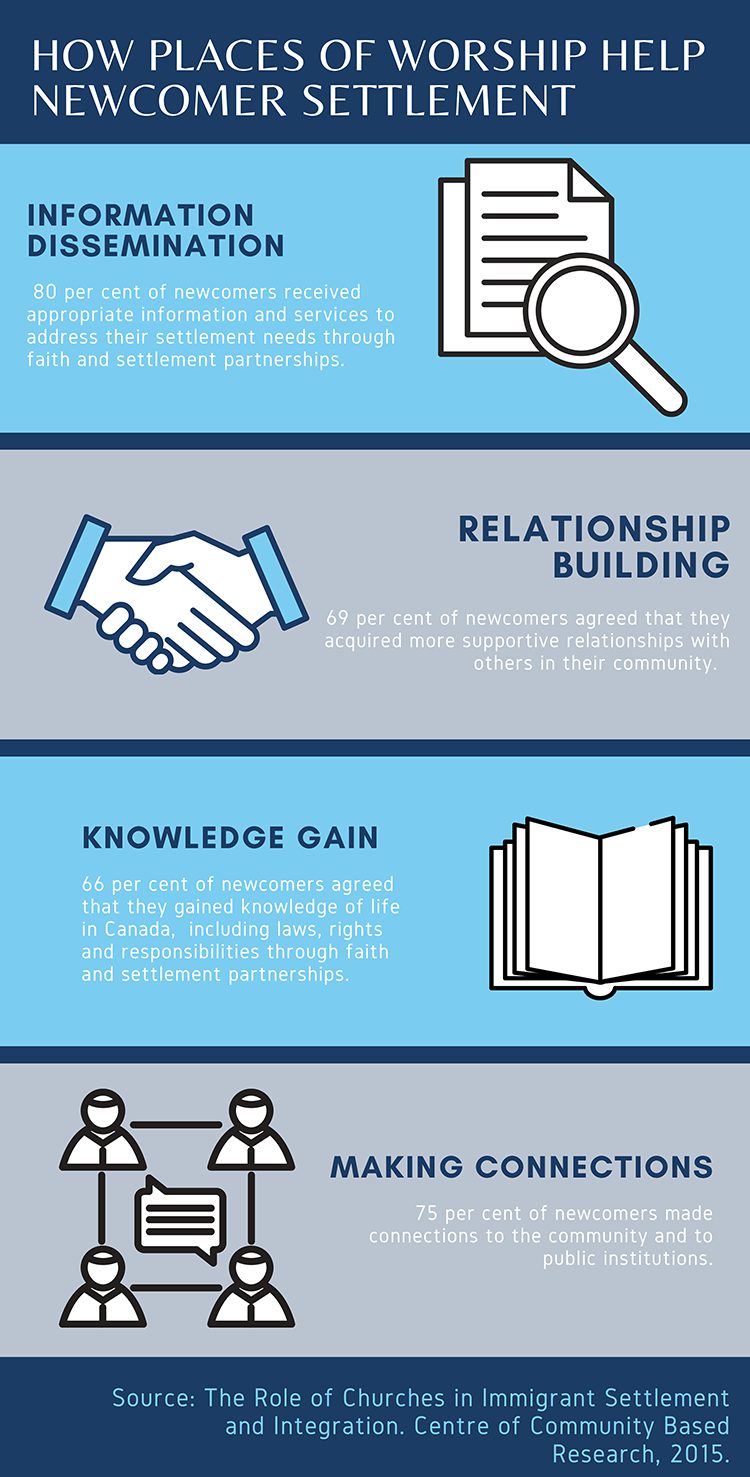
Places of worship play a crucial role in helping immigrants settle and integrate into their new surroundings. Pamphlet by Huda Hafez.
Many newcomers view places of worship as a place representing comfort and serenity as it reminds them of home.
“We have individuals that don’t speak French or English,” says Jeeroburkhan. “They meet people in places of worship who become their translator, and that lifts a huge weight off their shoulders.”
Places of worship serve as a crucial element for newcomers and immigrants to make friends and form connections that greatly alleviate the pressure and hardships of settling in. They also serve as an information hub, where shared experiences from other people can help immigrants navigate the new country they’re in.
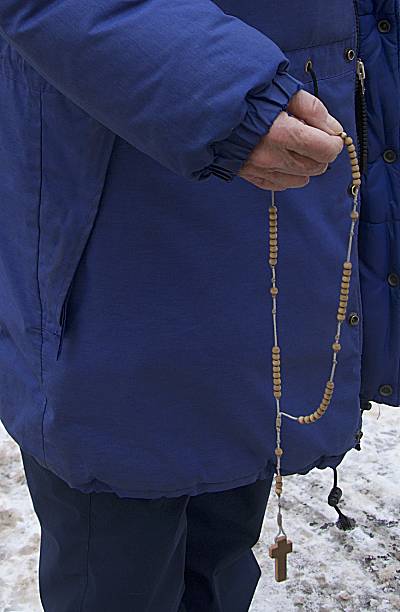
A worshiper praying with a Rosary on a not so typical Sunday Mass at the Mary, Queen of the World Cathedral parking lot. Photo by Malo Sarazin.
“People go to places of worship to meet people who have had similar experiences and can lead them in the right direction,” says Jeeroburkhan. “Word of mouth was big in places of worship. For example, there’s a vaccination campaign trying to target the older generation of Arab communities. This would have been a perfect opportunity for places of worship to spread that kind of information.”
It destroyed the sense of community and the friendships that used to be made.
Ahmad Ammar was one of the many that experienced the lost sense of community as restrictions dawned upon mosques all over Montreal.
Arriving in Canada from Egypt just two years before the pandemic hit, Ammar found the month of Ramadan to be the hardest of them all. The holy month for Muslims represents a time where worshippers get closer to God by praying in groups and spending a lot of time at the mosque.
“When COVID happened, it affected the prayers,” says Ammar. “Everything closed and nothing remained open. Ramadan came and in the month of Ramadan Muslims pray a special prayer called Taraweeh. This prayer is meant to be prayed in groups, so Muslims felt discouraged everywhere and had to pray it alone at home.”
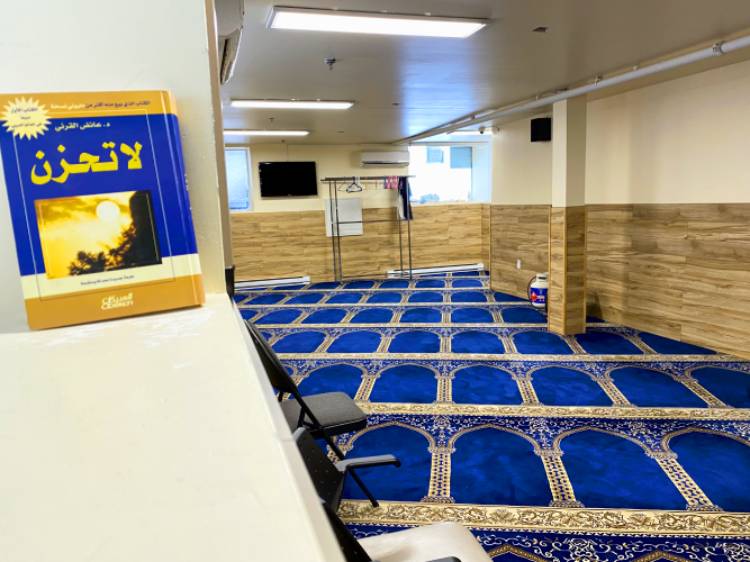
Al-Madina Center— a once busy mosque in Downtown Montreal left empty due to COVID-19 restrictive measures. Photo by Huda Hafez.
As the month progressed, Muslims noticed that prayer was not the only thing affected by the closures.
“Some mosques during Ramadan used to host meals for people to come together and break their fast,” said Ammar, “It was the idea of preserving culture and religion and the sense of community and that also had to stop. It was hard.”
As the pandemic eased, Quebec eased its health measures, allowing places of worship to reopen. However, the openings did not mean it restored the sense of unity and peace Muslims felt pre-pandemic.
“No one stayed after prayer, which was usually the case before COVID. It destroyed the sense of community and the friendships that used to be made,” says Ammar despondently.
During the first waves of the pandemic, Quebec had harsher measures on places of worship than other provinces. For instance Ontario, while encouraging outdoor religious gatherings over indoor ones, allowed places of worship to stay open. Quebec’s restrictions led to frustration for some religious groups.
“We have to pray three times a day,” says Rabbi Emmanuel, Rabbi at the Jewish Community Council of Montreal. “During the height of the pandemic, we were completely closed because the situation was unknown. Medically no one knew anything about anything. It was really disappointing, but we closed. Now it’s less threatening. Everyone is wearing masks, people are vaccinated, there’s no real basis for the closures.”
Despite the restrictions, synagogues remained open for worshippers to host Sabat as frustrations grew. Members of the Jewish faith pray in groups of 10, which was forbidden during the closures.
“You saw people praying in their porches, and sharing their porches with other people just so that they can pray,” said Rabbi Emanuel. “It was low and depressing and we can’t have that again. We have the knowledge now to do what’s right.”
